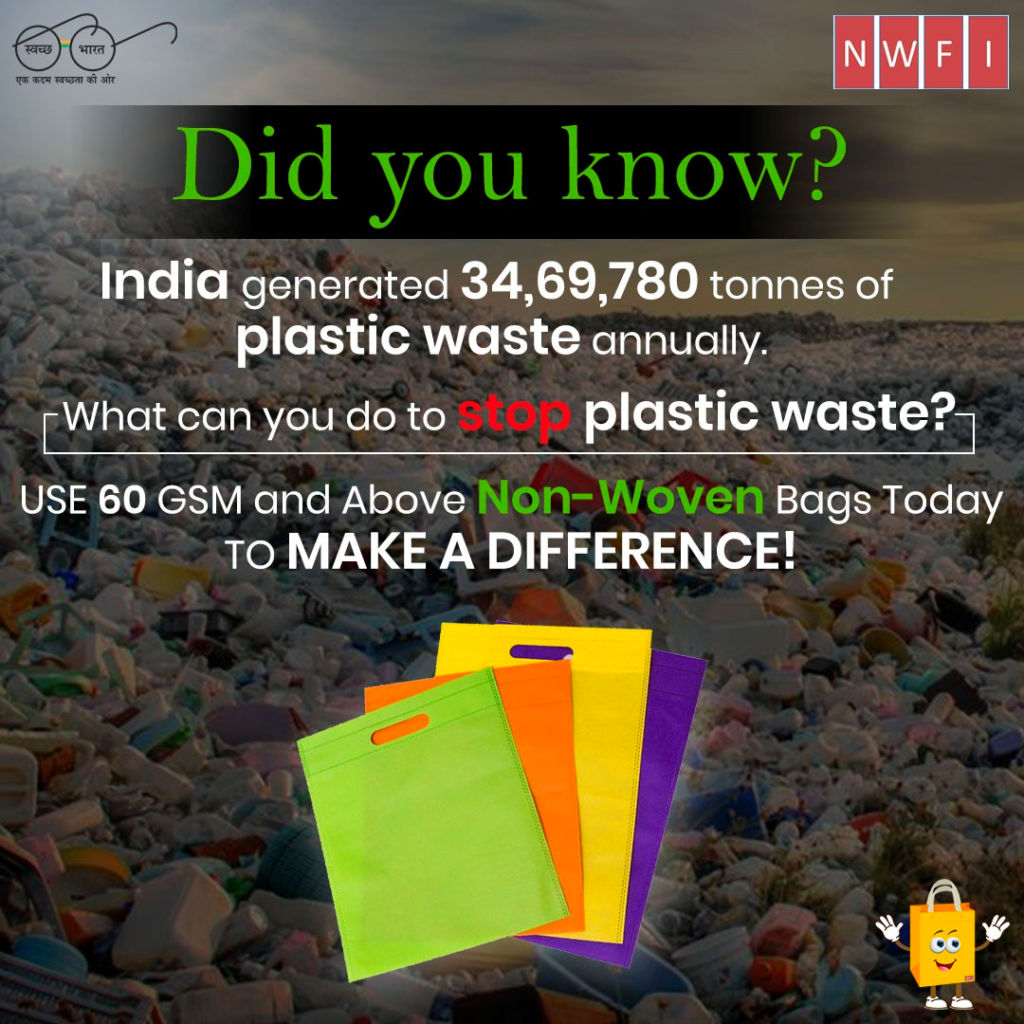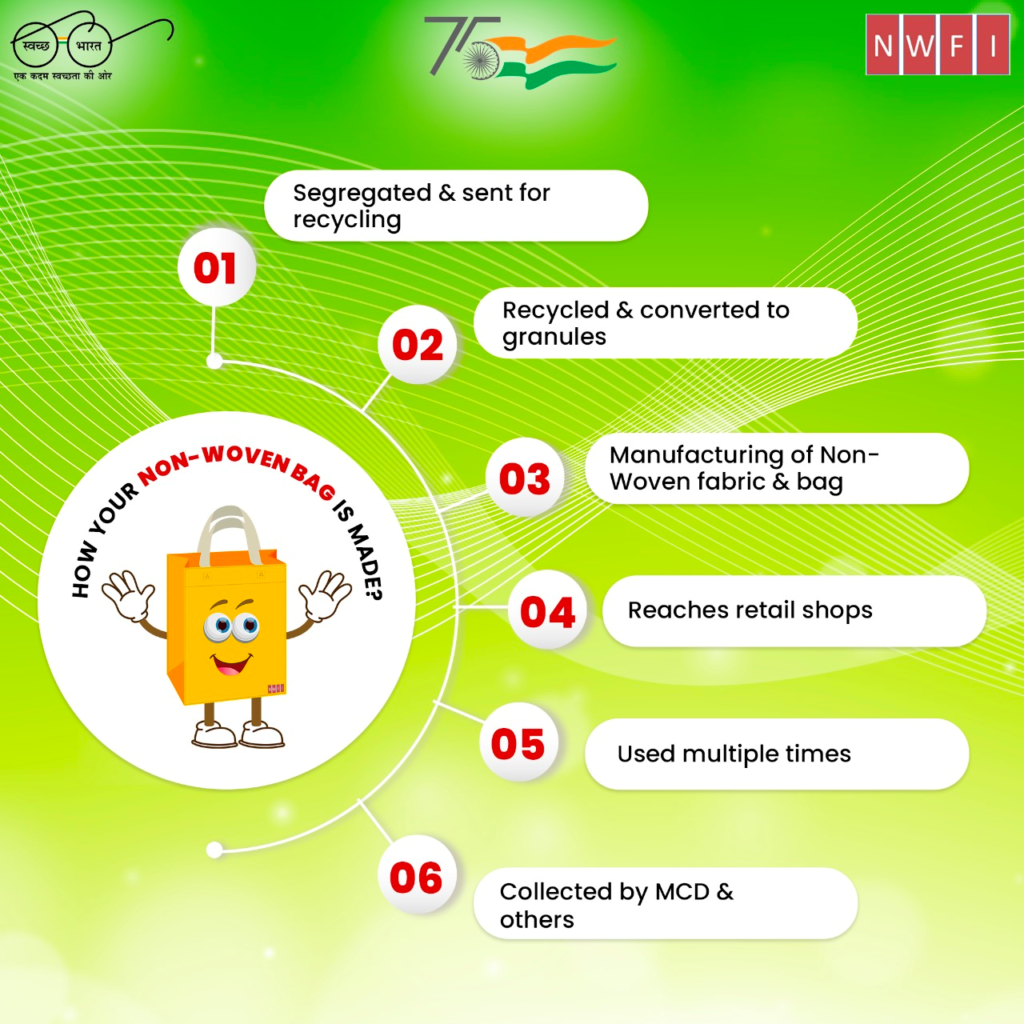Plastic bags are harmful for the environment but offer several benefits to the retailers.They are functional and convenient packaging options for businesses and consumers. They are
- Strong
- Reusable
- Recyclable
- Decrease our dependence on Natural Resources
- Durable
- Waterproof
But despite being an affordable and durable packaging solution, plastic bags end up in landfill and ocean and pollute the planet. Today, plastics are banned in several parts of the world and within India too because of their adverse effects.
Without any further delay, read ahead to know why plastic is banned.

Major Reasons of Plastic Getting Banned
- Plastics pollute Water and Land
Plastic bags are lightweight and thus, can travel a long way via both water and wind getting accumulated not just in water but on and too- between the trees, fences, road corners, etc. - Plastic Bags are Non-Renewable, Leading to Climate Change
Most plastic is made of Polyethylene that is further made using natural gas and petroleum. All these are non-renewable fuel based materials and produce greenhouse gases leading to global climate change. - Plastic Doesn’t Degrade
Honestly, petroleum-based plastic bags never degrade. Instead, they’re broken down into tiny pieces, ending up in water bodies, getting consumed by wildlife. - Plastic Bags are Toxic
Plastic bags are toxic and contain estrogen like substances. These substances cause a hormonal imbalance that can severely affect your health. - Plastics Harm Wildlife and Marine Life
Animals, birds, sea turtles, often mistake plastic bags and other plastic substances as food, ending up consuming them. Once all this enters their digestive system, it gets congested leading to suffocation and ultimately death. As the Ellen MacArthur Foundation reports, if the production and waste of plastic bags is not slowed down. The future looks grim! By 2050, there will be more plastic in the ocean than fish. - Plastic Bags are Expensive and Hard to Clean/Remove
Cities spend millions to maintain landfills annually. Costing a few cents, though it is considered free, it isn’t free at all. - Plastic Bags Can’t be Recycled
Plastic bags pose a challenge when it comes to recycling. The actual recycling rate of plastic bags is about 5%. On the other hand, low micron (Light weight) are not recycled at all due to collection problems. - Even after Recycling, Plastic Ends Up in Oceans and Landfills
Even the recycled plastic bags end up being dumped into the landfills or oceans. These recycled plastic bags are not degradable and cause the same effects as non-recycled plastic bags.
Alternatives to Plastic Bags
If you are looking for the right alternatives to the plastic bags and contribute your bit to the environment then the first few things that come to our mind are:
- Paper Bags
Unlike plastic, paper bags are recyclable and decompose way faster than plastic bags. Paper bags take up to one month to decompose and since they come from trees, they are considered ecological. They also pose a lesser risk of suffocation to animals and children. Even after use, you can throw them away and then they can be recycled again. - Cotton Tote Bags
Cotton shopping bags offer a great strength and thickness which makes them durable. They come in a plethora of designs and you have the liberty to choose as per your choice. If you are someone who likes fashionable and cool things, then high-quality cotton bags are your go-to options. They are reusable, produce lesser trash and are a safe option for kids.
But the question remains, are these really eco-friendly? The answer remains NO!
Side effects of using Cotton and Paper Bags
Paper can take long to break down and also results in deforestation. Cutting down forests affects the ecosystem so paper bags are harmful to the environment. Also, storage is difficult as they take up more room and can also attract insects. On the other hand, cotton also consumes a lot of energy to produce a crop just to make bags.
What’s the Ultimate Solution?
Meet the Non-Woven Bags
Non-woven bags are the most eco-friendly alternatives to plastic bags. They are completely eco-friendly and can be reused and recycled. Nonwoven bags are not only Eco-Friendly, they also have the lowest Carbon footprint , making them the best example of Circular Economy.
Let’s take a closer look to know about the different benefits of Non-Woven bags:
Non-Woven Bags are Recyclable:
Most Non-Woven bags are made using polypropylene, making them recyclable. Once recycled, you can use them to make new bags, making them more eco-friendly.
Non-Woven Bags are Durable:
Without second thoughts, Non-Woven bags are durable, strong enough to last over years, versatile, and reusable.
Non-Woven Bags are Breathable:
Non-woven bags are tailored using polypropylene, making them water-resistant, even more so than Non-Woven bags made from polyester. Polypropylene is equally breathable, so any Non-Woven bag made from it will dry quickly even after getting wet.
Non-Woven Bags are Printable & Customizable:
For business promotion, a Nonwoven polypropylene makes a perfect choice. You can produce them in different colors and get the brand logo printed on them.
Non-Woven Bags are Economical:
The efficiency of manufacturing is one of the reasons for its affordability. Also, unwoven bags can be produced at a shorter time and at much inexpensive price.
Non-Woven Bags have Least Carbon Footprint
Non-Woven bags are environmentally friendly due to least Carbon footprints!
Non-Woven Bags are Foldable
Non-Woven bags are foldable, making them more handy and portable. Being lightweight and foldable, you can carry them anywhere around in your purse, bags, backpack, etc. Carry anything and everything in them and stay assured that you have made a great eco-friendly choice.
Final-Words
Since now you are aware of the adverse effects of plastic bags on the environment, so, if you are still using plastic bags, make a environmentally-friendly switch by opting for the Non-Woven bags.




No Comments
Sorry, the comment form is closed at this time.